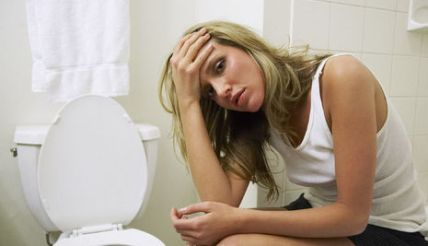


Many new parents tend to panic if their child begins throwing up food or passing watery or loose stools. In most cases, vomiting and diarrhea can both be treated without visiting a doctor.
About Vomiting and Diarrhea
Though vomiting and diarrhea can be caused by numerous germs, the most frequent sources are viruses, bacteria, or parasites. Most episodes of diarrhea and vomiting in children are caused by viruses like rotavirus or adenovirus, bacteria like Campylobacter, Salmonella and E. coli, or parasites like Giardia.Sometimes, improperly prepared, preserved, or stored foods may contain certain bacteria that can cause food poisoning, which is also characterized by diarrhea and vomiting.
Excessive vomiting or diarrhea can be dangerous in children because it can lead to dehydration. This condition occurs when the body loses not only water, but also essential electrolytes like sodium, chloride, potassium, and bicarbonate. These electrolytes are essential for cell function and maintaining the balance of fluids in the body. Severe dehydration can even lead to malnutrition and death in children.
Signs of Dehydration
Dehydration caused by vomiting and diarrhea can vary in severity from mild to severe. Signs of mild (or early) dehydration include extreme thirst, warm skin, a flushed face, a dry tongue, a decrease in urine production, weakness, dizziness, irritability, or cramping in the hands or legs.
If moderate to severe dehydration occurs, the child may experience fainting, falling blood pressure, a bloated stomach, sunken eyes, convulsions, a fast but weak pulse, and deep but rapid breathing. In babies, the soft area of the skull called the fontanelle may sink. Also, the skin of a dehydrated child begins to lose its elasticity, and the child’s heart may start failing.
As the severity of dehydration increases, the child may go into shock due to the loss of fluids and blood volume, and he or she may become cold and blue. If these children are not rehydrated, they could possibly die.
Preventing Dehydration
When a child becomes dehydrated, he or she must be given fluids immediately. These liquids should contain sodium to help replenish the salts in the body that are lost through vomiting or dehydration. Experts recommend sports drinks, clear soups, broth, and fruit or vegetable juices in addition to water. There are several products available in grocery stores or drugstores called oral rehydration solutions (ORS), which are specifically designed to treat dehydration caused by diarrhea.
Oral Rehydration Solution
An ORS contains glucose and salts like sodium chloride, potassium chloride, and trisodium citrate. This mixture helps replenish the water and electrolytes that are lost by the body as a result of diarrhea.
The best way to administer an ORS is to offer small and frequent sips to your child. Experts recommend two to three teaspoonfuls every 15 minutes or so, though parents should check the label of the ORS to determine the proper dosage for their child. It is important to continue giving the ORS if the child still has diarrhea.
Women who breastfeed their babies should administer the ORS as directed by the product’s label until more than eight hours elapse since the last episode of diarrhea or vomiting. However, they should avoid giving plain water to the infant until they have been told to do so by a health professional.
Feeding Your Child
If the diarrhea is mild, parents should continue to feed their children normal foods, formulas, or breast milk. The only dietary changes that may help the condition are more liquids or smaller, more frequent meals, though bland or light foods may be more palatable to the child. Maintaining a balanced, regular diet can help prevent the nutritional deficits that can occur with diarrhea.
Medications
In most cases, diarrhea in kids is caused by a virus which will go away on its own. If a doctor suspects a bacterial cause, antibiotics may be prescribed for a child who has severe diarrhea or weak disease-fighting capacities. A parasite that causes diarrhea can be detected with a stool test and eliminated with medication.
While there are plenty of products available to help adults combat diarrhea, parents should never give over-the-counter anti-diarrheal medicines to their kids. These medications act as anti-motility agents which control the diarrhea but do not address the underlying causes.
Calling a Doctor
Usually, a visit to the doctor’s office or emergency clinic is unnecessary if the child is active, eating, and drinking. Mild diarrhea tends to subside within a few days. During this time, rest and plenty of fluids are recommended, and parents should continue to monitor their children for signs of dehydration or an increase in the severity of diarrhea.
Preventing Vomiting and Diarrhea
Parents can take simple steps to help prevent vomiting and diarrhea. Since germs spread in areas where poor hygiene exists, diligent hand washing is the most effective approach. It is important for kids to wash their hands thoroughly before they eat or after they use the bathroom.
Other precautions include washing all fruits and vegetables before consumption, proper refrigeration of foods, cooking foods until they reach the proper temperature, and using clean kitchen utensils. Bathrooms and diaper-changing areas should be kept clean and sanitized. If pets are present in the home, their cages, crates, and feeding areas should remain clean and away from places where human food is consumed.
Dehydration can be dangerous to children because they can lose a large amount of water in a relatively short period of time. So watching for signs of dehydration and taking the appropriate measures when the child experiences vomiting or diarrhea can minimize the chances of any additional illness and speed up the healing process.